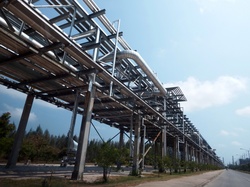WordPress is Bad for the Planet (Even If Many Still Use It)
We've just published "WordPress is for the 'Old Web'; the New Web Necessitates Static Pages" and a lot remains to be said regarding the costs nobody wishes to talk about (not just hosting bills; the planet itself does not care about money).
Despite "powering over 40% of the websites globally," as this page puts it, "WordPress sites are dynamic, meaning that they generate content on-the-fly every time a user visits the site. This requires a continuous interaction between the server, database, and the user’s browser, leading to increased server load and energy consumption. On the contrary, static WordPress sites are simplified versions where pages are pre-rendered and saved as HTML files. These files are served to users upon request, significantly reducing server load and, by extension, energy consumption."
We've looked for - albeit in vain - WordPress-related pollution graphs, or php/Web pollution graphs (that help illuminate the broader problem or cost of such programs). No doubt energy use of servers has long increased (in spite of microchips getting smaller or more efficient), even predating the ridiculous "HEY HI" (AI) bubble. An energy use graph would likely show that, for some arbitrary or "average" site, static generates about 10 times less pollution than a "classic" WordPress site. When we went static (and left WordPress behind) the server loads went down from like 5 (average load) to 0.1 or less. Memory consumption became negligible. It wasn't just a measurable improvement but a vast improvement. █

